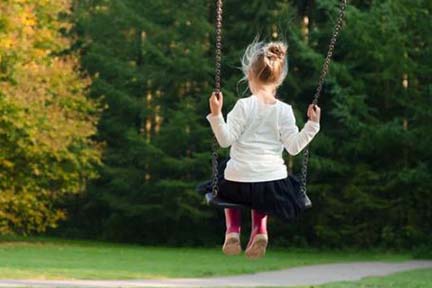
All ways, moving forward with Dave Coulter
|
||
|
||
|

|
||
|
||
|


CONTACT: Jaime Bochenek, Senior Development Director
Jaime.Bochenek@scouting.org or (248) 721-0903
The Boy Scouts of America’s Michigan Crossroads Council will host its eighth annual “Dodge
for Detroit” corporate dodgeball tournament to support inner-city youth Scouting programs on
Thursday, Aug. 4, at Detroit PAL’s Corner Ballpark.
The tournament will take place from 5-9 p.m. and serves as a unique spin on happy hour for
businesses in southeast Michigan. The event will offer four courts of action-packed dodgeball,
beverages and various food options. The tournament will be open to the public, and organizers
have several spots remaining for additional teams and sponsorships. Teams start at $600 and
include 6-10 players. Each team must have two female participants on the roster.
All proceeds from the event will support the local ScoutReach initiative, which delivers the
Scouting program to disadvantaged communities at no charge to participants or their families.
ScoutReach Executive Charity Davenport works to provide such opportunities through both in-
school and after-school programs in Detroit, Pontiac, Flint and other cities across the region.
According to Davenport, over 1,000 youth are presently registered, and they intend to expand
further in the fall.
“We are thankful to all of the Dodge for Detroit participants and patrons,” Davenport said. “The
success of this event empowers us to provide youth with programs and materials, as well as
opportunities they would otherwise not receive.”
This year’s event is on track for success thanks to the investments of local companies, including
presenting sponsor Alliance Mobile, a national AT&T provider with over 165 locations across
the country. Additional key sponsors include Palatine Hill Wealth Management and Rightsize
Facility.
Chad Ever Hartung, three-year event chairman and marketing and communications director at
Alliance Mobile expressed gratitude for all involved and said he is looking forward to another
amazing day supporting Scouting.
“We are truly honored to continue to grow this event to where we are today.” Hartung said.
“Dodge for Detroit provides incredible experiences to the youth of Detroit that they cannot get
anywhere else. Many of these kids have never left the city, and because of this event the BSA
has been able to take them on camping experiences with full gear at no expense to the youth and
their families.”
For information or to register for the event, visit: www.dodgefordetroit.org.






Brandon Kathman For Immediate Release:
District Executive 6/16/2022
(947) 886-5736
Leaders of the Michigan Scouting movement joined with civic groups and industry professionals to celebrate the most recent class of 758 Eagle Scouts with a banquet at the Suburban Collection Showplace in Novi on June 14.
The 2022 Eagle Banquet was a historic one, as it was the first to celebrate both boys and girls who achieved Scouting’s highest honor. Due to the time requirements for each rank in Scouting, those girls who formed the first female troops in 2019 are only now becoming eligible for Eagle. Though not all 758 youth from across the state were in attendance, hundreds of scouts and family members filled the event hall.
“Given the climate of the past few years, it was inspiring to see so many young people demonstrate perseverance in the face of adversity and uncertainty,” Charity Davenport, an executive with Michigan’s Scout Reach District, said.
Zach Damon, the banquet’s master of ceremonies and host of the award-winning “Ann Arbor Tonight” television show, described the dinner as “not just an event, but an experience.” Scouts were seated with leading professionals in fields they expressed an interest in. For Brooke Muzzy, 18, the opportunity to dine with Damon as well as local television anchor Michael Thorpe was invaluable, as she is considering opportunities in broadcasting.
“We got to discuss life and career goals with the professionals,” Muzzy said. “We got advice for entering the industry as well as a business card from each.”
Numerous sponsors contributed to fund the dinner, including the American Legion Department of Michigan, Mercury Sound and Lighting, Modetz Funeral Homes, the Huttenlocher Group and many others. The American Legion, which has maintained a national partnership with Scouting since 1919, is also one of the most prolific awarders of scholarships for Eagle Scouts.
“This is an important recognition for those who have achieved what many attempt but few attain: the highest rank in Scouting,” Damon said.
According to the Boy Scouts of America, only 4% of scouts have earned the rank since the organization’s inception in 1911. For many, it remains one of their proudest achievements in life.
“It means everything to me,” Muzzy, the first female Eagle in her district, said. “I wanted to be part of it ever since I was six years old and my brother joined Cub Scouts. When I was 15, we formed Troop 185G; two and a half years later, here I am.”







|
|
|||
 |
|||
DNR News |
|||
|
|||
| We recently launched a new website, and we’d love to hear what you think via this brief survey. Thanks for helping us improve our site for all users! |

|
|
|||||
|
|||||
|


Press Release FOR IMMEDIATE RELEASE: April 18, 2022 CONTACT: Bob Wheaton, 517-241-2112, WheatonB@ Children’s Trust Fund observes Child Abuse Prevention Month Activities, events around the state culminate in April 26 gathering at State Capitol LANSING, Mich. – Michigan’s Children’s Trust Fund is recognizing the importance of preventing child abuse and neglect with a month of activities that will culminate with an April 26 ceremony on the lawn of the State Capitol. Activities and initiatives through Michigan this month will center on the symbolic blue and silver pinwheel of Prevent Child Abuse America, which serves as a visual representation that everyone plays a role in providing children with a bright future. The mission of the Children’s Trust Fund to keep children safe and strengthen families across the state takes special significance each April for Child Abuse Prevention Month. As the only statewide organization dedicated to the prevention of child abuse and neglect, the work of the Children’s Trust Fund – which is within the Michigan Department of Health and Human Services (MDHHS) – supports local programs and services that touch all 83 Michigan counties. “Prevent Child Abuse America introduced the Pinwheels for Prevention campaign in 2008,” said Suzanne Greenberg, executive director of the Children’s Trust Fund. “The pinwheels are a representation of child-like whimsy and lightheartedness as well as a vision for a world where all children grow up happy, healthy, and prepared to succeed in supportive families and communities.” The Power of the Pinwheel is the theme of this year’s pinwheel campaign. Through the 100-plus prevention partners of the Children’s Trust Fund and this year’s statewide partnership with Blue Cross Blue Shield of Michigan, supporters of preventing child abuse are planting 50,000 pinwheels in hundreds of gardens throughout the state. The 14th annual Child Abuse Prevention Awareness Day rally is 11 a.m. April 26 on the steps of the Michigan Capitol. Featured speakers this year include MDHHS Director Elizabeth Hertel. The inaugural Inspire Award winner for volunteer service and commitment to preventing child abuse and neglect in Michigan will be presented to Sharon Barry of Barry County. “We are thrilled that our new partnership with Blue Cross Blue Shield of Michigan is giving us farther reach to expand and amplify our message for Child Abuse Prevention Month,” Greenberg said. “When we recognize that child abuse and neglect affect each of us and can unite under a common cause, we are giving hope to every child in our state and ensuring Michigan secures a stronger future.” For information on the Children’s Trust Fund and Child Abuse Prevention Month, visit michigan.gov/ctf. |